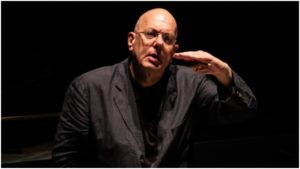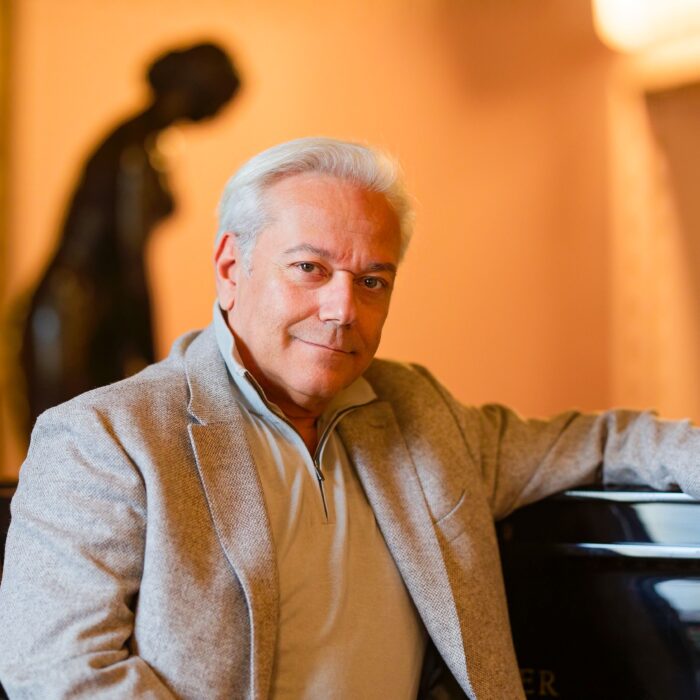
Q & A: Leon Botstein On The American Premiere Of ‘Das Wunder der Heliane’ & The Future Of Opera
By Francisco Salazar(Credit: Chris Kayden)
The Bard Summerscape has been known for programming unknown works that are either rarely performed or have never been showcased in the United States. This year the festival dedicated its program to Korngold, one of the foremost composers of the 20th century.
Continuing its tradition of performing one fully staged opera production, Bard is presenting the American premiere of “Das Wunder der Heliane,” a work that features the lush Romanticism that would define the quintessential Hollywood sound.
OperaWire spoke to maestro Leon Botstein, founder and co-artistic director of the Bard Music Festival, on showcasing the work for the first time in the U.S., almost 100 years after its world premiere at the Hamburg State Opera.
OperaWire: How did you decide to perform “Das Wunder der Heliane” for the Bard Music Festival?
Leon Botstein: We wanted to make Korngold the subject of the Bard Music Festival. And when we looked at Korngold’s operas, this was the most ambitious and yet had never been performed in the United States. It seemed the logical choice for this season.
OW: What is the biggest challenge when performing the premiere of a piece?
LB: The challenge is that the genre of the opera is a mystery play and a symbolic opera and it is not historical or a literary story. It has a contemporary political aspect because it has to do with the relationship of political tyranny and love. Ultimately love, in this case, conquers tyranny. We live in a moment in the U.S. where hate is being pulled as a political premise and there is a stranger in this and there is a population and its written in the years before the seizure of power before the Nazis. There is some uncanny timeliness to the work.
But it is very symbolic. There is a kind of old fashioned heavy-handed symbolism. And the idiom is kind of lyrical and late romantic musical aspects. People will see it as sounding like Mahler and Strauss. There is a Viennese lyricism to it. It’s lushly scored. I think it’s extremely hard to stage because there is not much action and the story line is not linear. It’s not the same as a Puccini opera and has some Wagnerian qualities like the love music.
OW: How does the music compare to “Die tote Stadt,” Korngold’s more popular work?
LB: This music is much more cinematic and you can see why he was so popular in cinema. It’s much more lushly scored. And this is a real effort at being dramatic opera and less of the lightness of “Die Tote Stadt.” It’s Korngold’s one foray into serious high drama. So it has grandeur.
OW: Can you describe the collaboration with director Christian Räth?
LB: We discuss what we thought would be the appropriate connection between the opera and the present. So there is a kind of place where we are aware of the political symbolism. I left Christian to do his work because he is very thoughtful and he has a great understanding of the text.
We read about why the opera was important and we adjusted to the dramatic visuals and the musical needs. It has been a very pleasant and enjoyable and instructive collaboration.
OW: Tell me about your outstanding cast and what the process has been with them?
LB: I worked a lot with Alfred Walker and Daniel Brenna is terrific. It is the first time I am working with Ausrine Stundyte and she is a terrific presence and her voice is magnificent. It’s been delightful and they have been very engaged.
They all live on campus so there is a lot of concentration and there is awareness that this is not a routine event. They know this is a first and that we want to do right by the work. The joy of putting on a piece for the first time is very liberating because there are no traditions. You are allowed mistakes and you are trying to find a work that has been in obscurity. You have to think about how you can be persuasive and bring that audience.
OW: Why is Bard the right place to present these rarely performed works?
LB: Bard is a great place because we are not interested in commercial performance. We want to make a contribution to knowledge and scholarship. We are interested in the future of music both in new music but also in the past.
If the past is only about 20 operas, then the future of the art form is going to be condemned. The way you tell the story of the past influences the way you tell the future. Our mission is not to compete with anyone but to show different repertoire.
OW: Do you think that Bard’s choices have influenced the repertoire?
LB: We have had some influence on the repertoire other houses do because I came back from the Mariinsky Theatre where they did the first performance of Zemlinsky’s “The Dwarf,” which we did here. I also did “Orestia” and that was a direct result of what we did in Bard. We have co-produced and we are in the business of bringing stuff back and we welcome collaboration. This is not just an academic exercise.
OW: Do you think that modernizing operas helps to better connect with today’s audiences?
LB: This one has not been updated because there is no date. This is not like “Rosenkavalier,” which is set in the 18th century, and bringing it to a more recent time. I am generally not all that sympathetic to updating because you run into issues with the libretto all the time. And if you look at something like “Rosenkavalier,” Strauss and Hofmannsthal were using an 18th century lens to take aim at their contemporary times. So there are ways to do it without having to change to much.
OW: But what about works that are lesser known, like “Heliane?”
LB: When you are faced with operas from the past that never entered the repertory, I do think that you have ask why it isn’t performed more often. It could be because of the musical values or dramatic values or the libretto. So like reviving a musical, they often change the story or other elements. So with “Heliane,” no one has seen it. So on one hand, you want to give it the best shot and not feel that you didn’t do the opera a disservice because you shredded an important aspect from it.
You could argue for doing anything you want with “The Marriage of Figaro,” because the music will always carry it through no matter what. And something like “La Bohème” has been so overexposed that no one knows what to do next, so they try anything new, like putting it onto a spaceship.
Now with “Heliane” we have an opposite case. You need to do your very best to honor the original conception sot he thing can be evaluated and responded to without your being accused of not paying attention or violating its original intent. On the other hand, if it fails, it fails and then it fails because it does need to be changed. And maybe that change is not musical,but its dramatic presentation. So you might decide to reorganize and fiddle with the looks or order.
We believe that that would be a mistake with “Heliane” because a lot depends on how you interpret the original story, not how you change it. So putting modern elements can help.
OW: Let’s talk about audience for opera. What do you feel is the direction and trajectory of opera’s current and prospective audience?
LB: The audience is growing and the tolerant audience for something new is changing into enthusiasm. We are, rather than making the point that opera is the one art form that defies mechanical reproduction. It is like a circus, in the best sense of the word. You have to be there to truly understand and enjoy it. The spacial complexity which allows the viewer to piece together a unique experience from a variety of distinct elements is not reproducible on recording, audio, or video.
In our specific case, we have seen more demand for our performances year by year. We sell out faster each time and that tells you something. It tells you that audiences want more unique experiences with the art form. That they aren’t satisfied with just chasing the newest star in the standard repertory. They are not chasing the new Wotan or Tosca or new Brünnhilde. They aren’t chasing the reinvention of the familiar. They are more interested in either newly composed opera or by great opera that is not being produced and should be produced. There is a growing curiosity for sure to see what else the art form has to offer.


